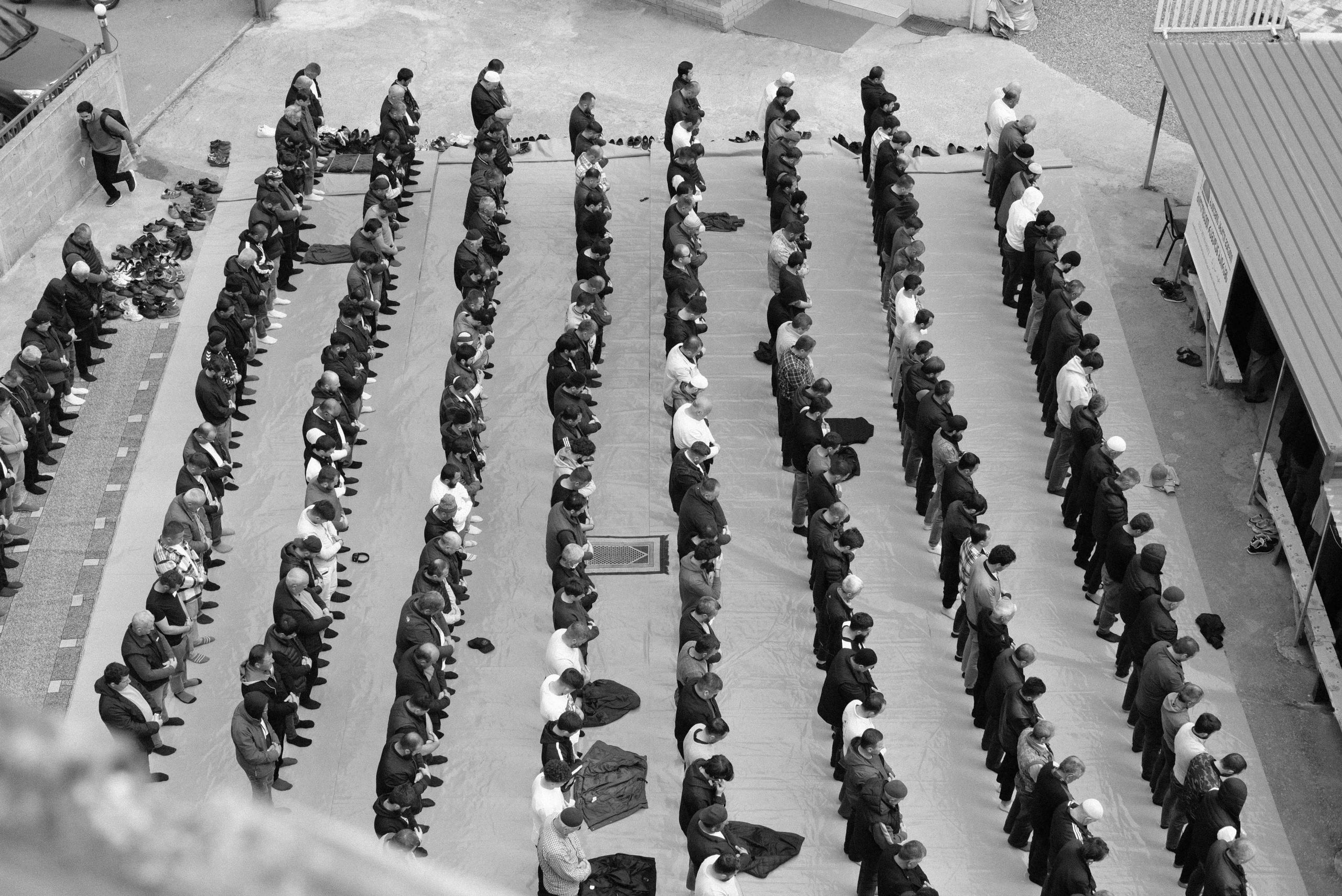
Every person deserves the dignity of practicing their faith in peace. Yet, the Muslim community in Batumi, Georgia, is denied this basic right. The city’s only mosque, built in the 19th century, is too small to accommodate the growing population. As a result, worshippers are often forced to pray outside, exposed to the sun, snow, or rain. This is not about needing a place to pray; it is about the right to practice one’s faith with respect and dignity. Despite more than a decade of legal battles, peaceful protests, and patient waiting, their efforts to build a new mosque continues to be blocked by the authorities. This struggle reveals deeper issues of religious freedom, minority rights, and Georgia’s commitment to ensuring justice and inclusion for all citizens.
The initial nation-building vision proposed by prominent Georgian intellectual and national figure Ilia Chavchavadze and his generation during the 1870s envisioned a rather multi-religious and multi-cultural Georgia. In his writings, Ilia sought to show Georgian Muslims that they were welcome in the Georgian state after being part of the Ottoman Empire for several centuries. He even suggested changing the nation’s motto from “Fatherland, Language, Faith” to “Fatherland, Language, History” to foster a more inclusive national identity. He believed that “neither unity of language, nor unity of faith and kinship binds people together as strongly as unity of history.”
A notable example of this nation-building vision was the First Democratic Republic of Georgia (1918–1921). Its founders made significant efforts to build a modern nation-state, attempting to adopt a liberal model influenced by European ideals, though the realities of minority integration and human rights were still evolving. Back then, Georgian Muslims played a key role in shaping the First Republic’s identity. Important figures like Memed Abashidze, Kadir Shervashidze, Osman Mikeladze, Haidar Abashidze, Gulo Kaikatsishvili, and other notable Georgian Muslims had a crucial role in building the early Georgian state. They worked towards a vision of a nation where various communities could coexist harmoniously. Due to the strong efforts of the Georgian Muslim Liberation Movement, Adjara is part of Georgia today.
However, the short existence of the Republic and the Soviet invasion ended this experiment and Georgian Muslims’ contributions have largely been forgotten, partly due to Soviet repression that sought to erase memories and suppress community identities, as well as the contemporary Georgian education system, which has not adequately acknowledged the role of Georgian Muslims in the country’s history. As a result, the rights of Georgian Muslims continue to be overlooked. In Batumi, where Muslims make up nearly 40% of the population, the only mosque cannot meet their needs, highlighting ongoing inequalities and historical injustices that still need to be addressed. Opposition to the mosque’s construction stems from historical fears and outdated views that considers ethno-cultural minorities as threats. In Georgia, there are discourses that securitize minorities, framing them as potential agents of foreign interference or sources of internal instability. These narratives often overlook the valuable contributions that minorities have made to Georgian society.
The inclusive nation-building vision of Ilia Chavchavadze and the First Democratic Republic of Georgia, which embraced Georgian Muslims as integral to the state, provides a model for dismantling divisive narratives and fostering a de-securitized approach based on inclusion. Building a new mosque in Batumi could help redefine security as a concept centered on trust, inclusion, and shared purpose, rather than control and exclusion. New mosque for Batumi Muslims is about more than meeting a practical need; it’s a chance for Georgia to embrace diversity and redefine itself as an inclusive nation. It reflects a step toward re-imagining Georgian national identity, one that prioritizes shared rights and responsibilities over religion, ethnicity, or other identity markers. A democratic Georgia can show Abkhazians, Ossetians, and other minorities that peaceful coexistence is possible in everyday life. By supporting the mosque, Georgia would send a strong message to the world: it is committed to democracy and the dignity of all its citizens.
Amidst these challenges, a new wave of democratic protests in Georgia has emerged, galvanized by widespread discontent over rigged elections and the Georgian Dream’s controversial decision to suspend Georgia’s EU accession process. These pro-European demonstrations have created a powerful platform for minorities to voice their struggles. For Georgian Muslims, this movement represents a pivotal opportunity to articulate their pain, highlight systemic discrimination, and demand meaningful change. These protests enable Georgian Muslims to share their experiences of social inequality and discrimination, fostering broader societal understanding and empathy. Moreover, they underscore the potential for collective action to challenge entrenched systems of inequality and advocate for a future aligned with the values of democracy, human rights, and social justice.
This process also invites difficult questions: how to envision the Georgian national identity that goes on par with democratic aspirations? How can it show its citizens that diversity is a strength, not a weakness? Building the Batumi Mosque would answer these questions with action, not words. It would symbolize a more inclusive Georgia where every citizen belongs, and where inclusivity is not an ideal but a reality.
Resolving this issue demands bold action from leaders, solidarity from citizens, and support from international allies. Georgian leaders must address the systemic inequalities that undermine minority rights and remove the legal and bureaucratic barriers to the mosque’s construction. Civil society should continue its advocacy to reshape public discourse and foster solidarity. International partners can amplify these efforts through diplomatic and financial support, reinforcing Georgia’s commitment to democratic principles.
The Batumi Mosque issue stands at a crossroads for Georgia. Will the country seize this moment to embrace its diversity and make meaningful progress toward democracy? Or will it remain constrained by historical biases and political fears? Building the mosque goes beyond meeting a practical need; it is about creating a foundation for a nation that celebrates diversity, respects every citizen’s dignity, and turns democratic promises into practice. The time to act is now.